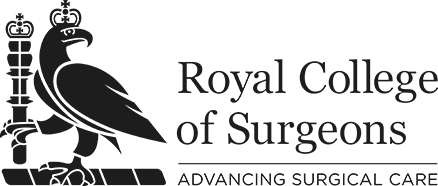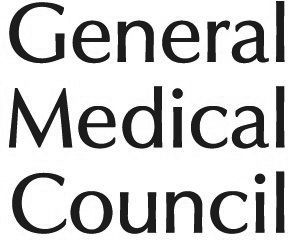Mr Neil Dorward, Consultant Neurosurgeon
Mr Neil Dorward
Consultant Neurosurgeon
Mr Neil Dorward BSc MB BS FRCS FRCS(SN) MS
Consultant Neurosurgeon
Mr Neil Dorward
Consultant Neurosurgeon BSc MB BS FRCS FRCS(SN) MS
Recommendations for Mr Dorward
These recommendations are for information purposes only. Doctors providing recommendations do so in good faith and are not responsible for clinical outcomes.












Recommended by:
Make an appointment
Address
-
The Wellington Hospital (Mondays AM & PM)
Wellington Hospital South Bldg, The, 8A Wellington Pl, London, NW8 9LE
-
Platinum Medical Centre
15 - 17 Lodge Road, London, NW8 7JA
-
The Wellington Hospital Elstree Waterfront (Wednesdays, AM & PM)
The Waterfront Business Park, Beaufort House, Elstree Road, Elstree, WD6 3BS
-
Telephone or video consultation
Virtual
About Mr Neil Dorward
Mr Neil Dorward is a highly esteemed Consultant Neurosurgeon based in London. With a special interest in neuro-oncology and spinal surgery, Mr Dorward is dedicated to treating a variety of conditions, including neck and back pain, spinal deformities, and brain tumours. He is particularly passionate about employing minimally invasive techniques in both brain and spinal surgery.
Mr Dorward completed his undergraduate training at St Mary's Hospital Medical School in London and continued his specialist training in the same city. He focused on neurosurgery and spent two years undertaking a research degree that concentrated on the technology involved in intra-operative image-guidance for neurosurgery.
Currently, Mr Dorward serves as a Consultant at the National Hospital for Neurology and Neurosurgery in Queen Square, London. He also holds the position of Clinical Lead for Endoscopic Neurosurgery. His commitment to medical education is evident through his active involvement in training surgeons in endoscopy. Additionally, he is a faculty member on numerous neurosurgery training courses at the Royal College of Surgeons. Mr Dorward's passion for research is demonstrated by his direction of a clinical research programme, which includes two full-time research fellows.
Mr Neil Dorward's extensive expertise and dedication to both patient care and medical education make him a leading figure in the field of neurosurgery.
Areas of expertise
- Back pain
- Brain surgery
- Brain tumours
- Cervical disc replacement
- Cervical discectomy
- Craniotomy for glioma
- Endoscopic procedures
- Endoscopic surgery
- Endoscopic ventricular surgery
- Fusion surgery
- Image-guided neurosurgery
- Lumbar microdiscectomy
- Meningioma
- Minimally invasive spinal surgery
- Neck pain
- Neuro spinal
- Neurological oncology
- Neurooncology
- Percutaneous pedicle screw fixation
- Pituitary region surgery
- Pituitary surgery
- Sciatica
- Scioliosis
- Spinal decompressions
- Spinal fixation
- Spinal surgery
- Spinal tumours
- Stereotactic biopsy
- Ultrasound elastography
- Ventriculostomy
Frequently asked questions
What are the common symptoms that your patients tend to present with?
There are two different parts of my practice, and so they present with different features. The pituitary patients most often present with deteriorating vision, with a loss of field, a gradual progressive loss of the outer parts of their field of vision, coming in towards the centre and then maybe even losing sight in one of their eyes. This would be the commonest pituitary presentation.
The other side of my practice is degenerative spinal surgery, and so the majority of those patients present with the symptoms of spinal nerve root compression such as sciatica or spinal cord compression where they have increasing loss of function in hand, fine finger function and unsteadiness of gait.
Of all the patient groups, the biggest would be the patients presenting with either sciatica or arm pain from nerve compression.
What are the treatments that you're able to offer your patients?
As a surgeon, my treatments are surgical. On the pituitary surgery side of my practice, I do fully endoscopic pituitary surgery. It's a minimal access operation up the nose to remove tumours around the pituitary region.
In spinal surgery, I offer the full range of decompression operations to relieve pressure on the nerve, disc replacement (particularly cervical disc replacement gives very good results). I do a lot of disc replacement and I'm one of the biggest users of disc replacements by numbers. Then there are the complex spinal fixations that I do for patients with very deteriorated lumbar spine who needs screws and rods and fusion operations.
What are your areas of sub-specialist interest?
My areas of interest are around the central skull based endoscopic surgery, going beyond the pituitary surgery to do more intracranial surgeries which is extended transsphenoidal operating, and complex spine surgery. Central skull base surgery is generally around removing tumours near the skull base that are going up into the third ventricle, pushing up into the brain. These are very difficult to get at with standard surgical techniques. Hence, the endoscopic route provides an excellent corridor to get to them.
Professional memberships


Articles by Mr Neil Dorward
Precise cannulation of the foramen ovale in trigeminal neuralgia complicating osteogenesis imperfecta with basilar invagination

 Instant booking
Instant booking






















_1645619329430.png)
_1645619386628.png)
_1645619440420.png)
_1645621447523.png)
_1645621532648.png)
_1645621586683.png)
_1645621641210.png)
_1645621693873.png)
_1645621751730.png)
_1645621798896.png)
_1645621854649.png)
_1645621903880.png)
_1645621968217.png)
_1645622041644.png)
_1645622092260.png)

















